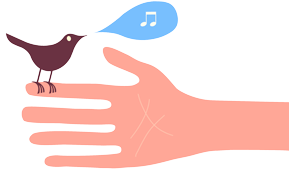 Note: If you are going to be in an environment with abusive people, some things on this list may help you but others will not. In such a case, focus on safety planning for yourself. Get a therapist, a friend, or an advocate at a domestic violence program to help you make a plan. Enjoying holidays with abusive people may not be possible and that’s neither your fault nor your responsibility to fix.
Note: If you are going to be in an environment with abusive people, some things on this list may help you but others will not. In such a case, focus on safety planning for yourself. Get a therapist, a friend, or an advocate at a domestic violence program to help you make a plan. Enjoying holidays with abusive people may not be possible and that’s neither your fault nor your responsibility to fix.
Some ideas to help you deal with — maybe even enjoy! — holidays and family visits any time of the year.
- Remember you are an adult. Sometimes people or events that remind us of childhood lead us to feel a lot younger than we are. Try wearing something (eg. bracelet, ring) or having something in your pocket (eg. keys, a crystal) that reminds you that you are an adult.
- Go outside. Don’t get stuck inside all day trying to manage people and feelings. Take a walk or just go stand outside for a bit.
- Get support. Ahead of time, talk with a friend or partner or family member about getting support when needed. If you want, you can make an arrangement to check in and support each other at particular times.
- Be curious. See if you can approach the gathering or visit with a fresh perspective and look at what is going on for you and others.
- Eat what you want, as much as you want, and when you want as much as possible. It’s up to you. Food and eating are morally neutral. Remind yourself, “It’s just food. I can do whatever I want.” Diet culture lies. Try not to internalize it.
- Have compassion for yourself. You can accept yourself exactly as you are right this moment. Paradoxically, the more we accept ourselves exactly as we are, the more possible it is for us to change.
- Listen to music you like. Sing and dance. Do things that lift your spirits and give you joy.
- Plan, don’t dread. If there is something you are dreading, that means it’s predictable, right? You have a very good guess about how things are going to go. So plan for it. Rehearse what you’re going to say and do. Set up support ahead of time. If you have a supportive person who will be with you, ask them to step in and change the subject if the discussion turns to Dreaded Topics. If you are part of an oppressed group and having to deal with others’ biases, remember that their opinions are not. about. you. Try not to internalize other people’s bigotry; try not to let other people cause you to feel bad about yourself
- Stay in the present. As Fritz Perls said, “Lose your mind and come to your senses.” Pay attention to your breath. Try to make your out-breath last longer than your in-breath. Notice what you see, hear, smell, taste, touch. Any time you think of it, you can return to the present moment.
Sending you wishes for peace, connection and healing.
